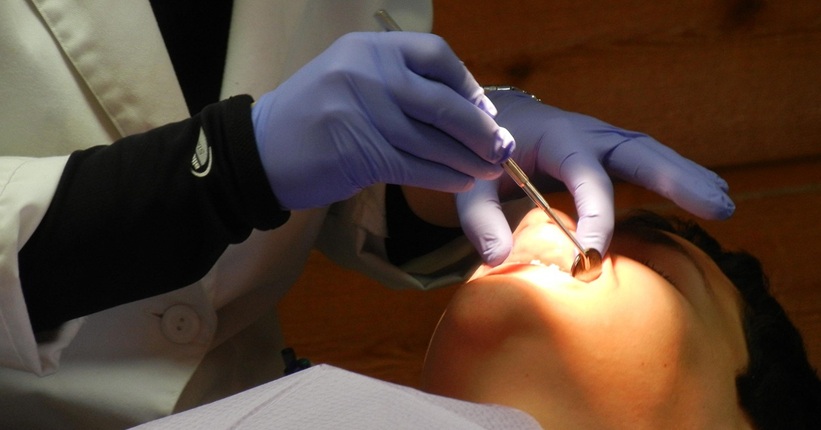
What procedures should be considered when inserting dental implants?
The decision to insert dental implants is an important step on the way to recovering a beautiful smile and the functionality of the bite. Modern dentistry offers a wide range of solutions that can accompany the implantation process, increasing its effectiveness and patient comfort. In this article, we will discuss the key procedures to consider when planning dental implants — from bone augmentation, to procedures such as sinus lift, to the necessary preparatory and postoperative steps. Each of these stages plays an important role in ensuring long-term success and satisfaction with the treatment carried out. Understanding what additional procedures may be needed or recommended in your case will help you better prepare for the procedure and understand why they are part of a comprehensive implant treatment process. We will also look at why an individual approach to the patient and his needs is crucial in the implantation process, and how properly selected additional treatments can significantly affect the final outcome of treatment. Read on to learn more about these vital aspects of dental implant insertion and how best to prepare for this groundbreaking procedure in your life.
When to opt for a tooth implant?
The decision to use a dental implant depends on several key factors. Here are some situations in which you might want to consider tooth implantation:
- Missing one or more teeth: If you have lost a tooth or several teeth due to injury, gum disease, caries or any other reason, implants may be the best option to restore the full functionality of the bite and the aesthetics of the smile.
- Reluctance to wear removable dentures: People who do not want or cannot wear removable dentures (such as partial or complete dentures) may consider implants as a more stable and comfortable solution.
- Problems with existing bridges or prostheses: If traditional bridges or dentures cause discomfort, are unstable or aesthetically unsatisfactory, implants may be a better alternative.
- Good overall health: Implantation requires generally good health, as it is a surgical procedure. Good general health and oral health are important for the healing process and osseointegration of the implant.
- Sufficient amount of maxillary bone: Sufficient bone is necessary to support the implant. In cases where there is not enough bone, bone augmentation may be necessary before implantation.
- Non-Smoking: Smoking can negatively affect the healing process and increase the risk of postoperative complications, which is why non-smokers have a better prognosis for the success of implantation.
- Willingness to comply with recommendations and regular check-ups: Implantation requires compliance with the doctor's recommendations and regular check-ups to ensure proper healing and long-term success of the procedure.
Always before deciding on implantation, it is recommended to consult an experienced dentist or maxillofacial surgeon. The professional will assess your individual case, oral health, and overall health to determine if tooth implantation is the right option for you. It is also important to have realistic expectations about the process and results of the treatment.
Treatments that help with tooth implantation
When inserting a dental implant, there are several treatments that may prove helpful or even necessary, depending on the individual needs and health condition of the patient. Here are some of them:
- Bone augmentation
- Raising the bottom of the maxillary sinus
- Tooth extraction
- Bone and soft tissue regeneration
- Control of general health
- Preventive treatments
Bone augmentation
Bone augmentation, also known as bone reconstruction, is a key procedure used in implant dentistry, especially in cases where the patient does not have enough jaw bone to support the dental implant. This procedure is important because the stability and durability of the implant depend on its integration with the bone.
The loss of the jaw bone can be caused by various factors, such as periodontal diseases, injuries, long-term tooth loss or age-related processes. In these situations, the bone can gradually atrophy, making it unable to support the implants effectively.
There are several techniques for bone restoration, including:
- Bone grafting
- Replacement materials such as synthetic bone or processed animal bone
- Proteins that stimulate bone growth
Bone augmentation is essential to ensure the success of dental implantation, especially in situations where lack of bone would be an obstacle to stable and permanent implant placement. It should be remembered that each case is individual and requires a personal approach, so it is important to consult an experienced dentist or maxillofacial surgeon.
Sinus lift (elevation of the bottom of the maxillary sinus)
The maxillary sinus floor lift procedure, also known as sinus lift, is a procedure used in dental implantology to increase the amount of bone in the upper jaw, especially in the area of the lateral and molars teeth. This is a crucial procedure in cases where natural bone is too thin to support dental implants. Here are the main aspects of this treatment:
The main goal of raising the bottom of the maxillary sinus is to create enough bone to place dental implants in the upper jaw. Many people have a naturally thin layer of bone in this part, which is insufficient for the implants to be securely anchored.
The procedure begins by making an incision in the gum to expose the jaw bone. Then the surgeon gently separates the membrane of the maxillary sinus from the bottom of the sinus, creating a space that is filled with bone-forming material. This material can come from the patient's bones, be synthetic, or come from other sources.
Maxillary sinus lift is a procedure that can significantly increase the possibilities of implant treatment in patients with limited bone in the upper jaw, allowing them to enjoy the benefits that dental implants offer. It is important that the procedure is carried out by an experienced specialist who will carefully assess the individual needs of the patient and properly plan the treatment to achieve the best results.
Tooth extraction
Tooth extraction is a procedure that may be necessary before proceeding with dental implantation. It is the process of removing one or more teeth that are too damaged or infected to be preserved. Extraction is an important step in preparing the oral cavity for the subsequent insertion of implants. Here are the main aspects of this treatment:
Before deciding on extraction, the dentist carefully assesses the condition of the patient's teeth. Teeth that are severely damaged by caries, injuries, advanced gum disease, or other problems may need to be removed to make room for implants.
After tooth extraction and proper healing of the gums, you can proceed to implantation planning. The time between extraction and implantation may vary, depending on the individual needs of the patient and conditions in the oral cavity.
In cases where tooth extraction is carried out in the visible part of the smile, it is possible to temporarily use a prosthesis or bridge to preserve the aesthetics of the patient's smile until implantation is performed.
Tooth extraction in the context of implantation is often unavoidable, but it is important that it is carried out with a long-term treatment plan in mind. The goal is not only to remove the problematic tooth, but also to prepare the oral cavity for optimal support and functioning of the implants. Here, too, as with any dental procedure, strict adherence to postoperative recommendations and regular follow-up visits are crucial to ensure healthy healing and successful incorporation of implants into the structure of the oral cavity.
Bone and soft tissue regeneration
Bone and soft tissue regeneration prior to implant placement is an important process in preparing the oral cavity for optimal dental implant support. This is especially important in cases where the patient has deficits in bone or soft tissues, which can be the result of various factors such as gum disease, injuries, long-term tooth loss or age-related processes. Before proceeding with any restorative procedures, the dentist or maxillofacial surgeon carefully assesses the condition of the patient's bone and soft tissue, often using advanced imaging tests such as computed tomography (CT).
If the gum tissue is too thin or damaged, a soft tissue transplant may be necessary. The material for the transplant may come from another place in the patient's mouth. Barrier membranes are often used to help isolate the bone regeneration area from soft tissue, which allows for better healing and bone restoration.
Bone and soft tissue regeneration is extremely important in the context of preparation for the placement of dental implants, especially in situations where the natural structure of bone and soft tissue is inadequate. This not only ensures the stability and durability of the implants, but also contributes to a better aesthetic and functional result of treatment. Thanks to modern techniques and materials, it is possible to effectively restore the lost structure of bones and gums, which is crucial for the success of dental implantation.
Control of general health
Checking your overall health is an extremely important part of the process of planning and carrying out dental implantation. The patient's overall health can have a significant impact on the success of the procedure and the healing process. Here are some key aspects to look out for:
- Medical evaluation: Before proceeding with implantation, a thorough medical evaluation is necessary. Your doctor may ask about your medical history, current medications, allergies, and other important health information.
- Chronic diseases: Some chronic diseases, such as diabetes, cardiovascular diseases or osteoporosis, can affect the healing process and the achievement of osteointegration (integration of the implant into the bone). In these cases, it is necessary to work closely with the attending physician to properly manage the patient's health before, during and after the procedure.
- Oral Health: The state of oral health is equally important. Gum disease, untreated tooth decay or other oral problems can increase the risk of complications and affect the outcome of implant treatment.
- Smoking: Smoking is a significant risk factor in the healing process and can increase the likelihood of postoperative complications. Patients who smoke tobacco are often encouraged to quit before proceeding with implantation.
- Diet and lifestyle: Your overall lifestyle and diet can have an impact on your oral health and your body's overall ability to heal. A healthy diet, rich in vitamins and minerals, is recommended during the preparation period for the procedure.
- Medications: Some medications, including anticoagulants or immunosuppressants, can affect the healing process. It is important to inform your doctor about all medications you are taking so that treatment can be adjusted accordingly before and after the procedure.
- Mental preparation: The emotional and psychological state of the patient also plays a role. Understanding the process, realistic expectations, and emotional support can significantly contribute to a better transition through the entire treatment process.
Checking your overall health before starting dental implantation is crucial, as it can significantly influence the choice of procedure technique, treatment planning, as well as the success and durability of implants. The patient's cooperation with the treatment team, openness to providing complete information about their health status and willingness to comply with medical recommendations are essential to ensure the safety and effectiveness of the implantation procedure.
In conclusion, a holistic approach to the patient's health, taking into account both physical and psychological aspects, is inherent in an effective and safe dental implantation process. Regular check-ups and close collaboration with the medical team ensure that any potential health problems are properly managed and the risk of complications is minimized.
Preventive treatments
Preventive procedures play an important role in the context of dental implantation, with the aim of providing the best conditions for the procedure and the long-term success of implantation.
Before proceeding with implantation, it is important to thoroughly examine and treat any existing dental problems. It is recommended to treat caries, gum disease, and other infections or conditions in the mouth to provide a healthy environment for the implant.
Control and treatment of gum disease, such as gingivitis or periodontitis, is crucial before implantation. If left untreated, gum disease can lead to further bone and soft tissue atrophy, which negatively affects the success of implantation.
Educating patients about the importance of proper care before and after surgery is an integral part of prevention. Understanding the treatment process, the potential risks, and the need to strictly follow medical recommendations is critical to ensuring the success of implantation. Preventive treatments aim not only to prepare the oral cavity for implantation, but also to ensure that the patient is able to maintain good oral health after the procedure. They prevent many potential problems, such as infections, that can lead to implant rejection or other complications. As a result, prevention is an important aspect of comprehensive patient care, aimed at ensuring long-term success and satisfaction with the results of implant treatment.
summary
In summary, the dental implantation process is not only the implant placement procedure itself, but also a number of important accompanying procedures that are crucial to ensure the effectiveness and long-term success of the treatment. From bone augmentation, through maxillary sinus lifting, tooth extraction, bone and soft tissue regeneration, to comprehensive preventive treatments — each of these stages requires careful planning and implementation by experienced specialists.
Remember that the general health of the patient, his lifestyle and involvement in the process of treatment and care of the oral cavity have a direct impact on the result of implantation. Proper medical evaluation, close cooperation with the dental team and adherence to postoperative recommendations are key to achieving the best results.
Dental implants offer revolutionary opportunities in the field of smile restoration and bite functionality, and with advances in surgical techniques and materials, more and more people can benefit from these advanced solutions. However, as with any complex medical process, success lies in the details — and these begin with a solid foundation, which are properly performed accompanying treatments.
Content author

Dr. Jan Kempa
Dr. Jan Kempa is a passionate dentist who always cares about a good relationship with patients. His positive attitude makes even the most timid patients feel safe. He specializes in implantology and dental surgery, using modern treatment techniques. He is enthusiastic about using his own tissues to rebuild bones before implantation and to cover gum recession. Dr. Kempa always finds the time to listen to the patient and offers individual solutions.

Start treatment already today!
Make an appointment and discover why our patients recommend us to their loved ones. We will take the utmost care of your smile.


